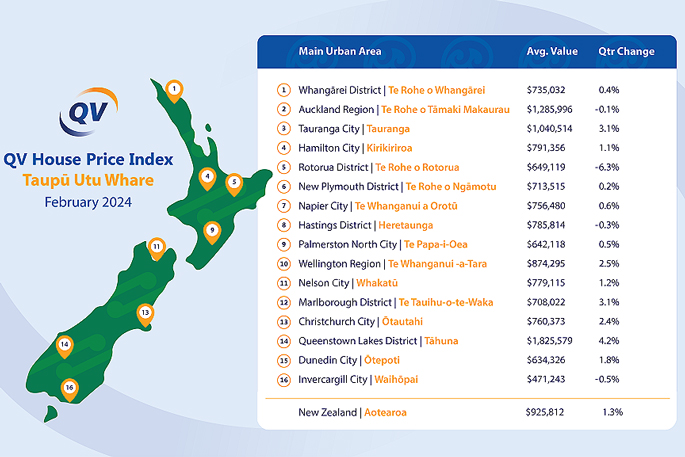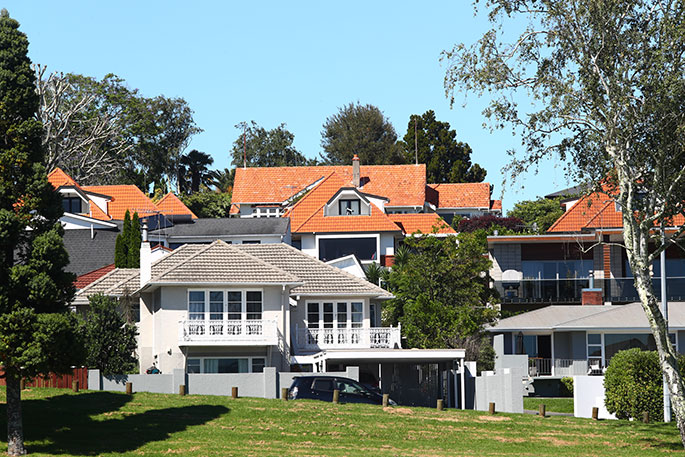Home value growth remains relatively robust in Tauranga compared to most other main centres, reports QV.
The city’s average home value increased 3.1 per cent to $1,040,514 this quarter, up from the 2.2 per cent growth reported for the January quarter.
The average value is now just 0.5 per cent less than at the same time last year, and 31.1 per cent higher than at the outset of Covid-19 back in March 2020.
Nationally, property values are slightly higher on average annually for the first time since August 2022.
This comes despite the latest QV House Price Index for February 2024 showing the rate of home value growth has largely flattened across New Zealand’s main urban centres this quarter, with the average home value increasing by just 1.3 per cent nationally to $925,812 – down from 2 per cent quarterly growth in our previous index.
The national average home value is now 0.6 per cent higher than the same time last year and 13 per cent below the market’s peak in late 2021.
“This small but significant return to positive year-on-year growth means that all the value softening we have experienced over the last 12 months has now been reversed at a national level,” says QV operations manager James Wilson.
“However, the slow but steady growth that we have been experiencing since June last year now appears to be flattening even further.”
Just three of the main urban areas we monitor experienced more positive home value growth this quarter than last – Tauranga (3.1 per cent), Nelson (1.2 per cent), and Marlborough (3.1 per cent) – with Auckland’s three-month rolling average going into negative territory (-0.1 per cent) for the first time since August last year.
Values in Wellington (2.5 per cent) and Christchurch (2.4 per cent) continued to grow, albeit at a reduced rate.
“This flattening trend is largely being driven by diminishing demand. In some areas, it appears that the increase in the number of new listings that came onto the market in late January and in February appears to have met market demand, cooling competition in places like Auckland in particular, and therefore flattening home value growth,” says James.
“This trend is expected to continue over the next few months. Strong value declines are unlikely, even as we start moving into autumn and then eventually winter, when sales volumes are likely to reduce even further.
“But with such strong economic headwinds in place, we’re also unable to pinpoint anything that would spark a return to strong value growth over the next 3-6 months.”
Meanwhile, the Reserve Bank’s decision to leave the Official Cash Rate unchanged means that short-term mortgage rates will remain broadly as they are for the foreseeable future.
“There is still a reasonable amount of uncertainty about what the Reserve Bank will do next – whether we’ll see it cut the OCR late this year, or whether we might even see it rise further. Either way, the real estate market doesn’t tend to like this sort of uncertainty.”
 Image: QV.
Image: QV.



0 comments
Leave a Comment
You must be logged in to make a comment.